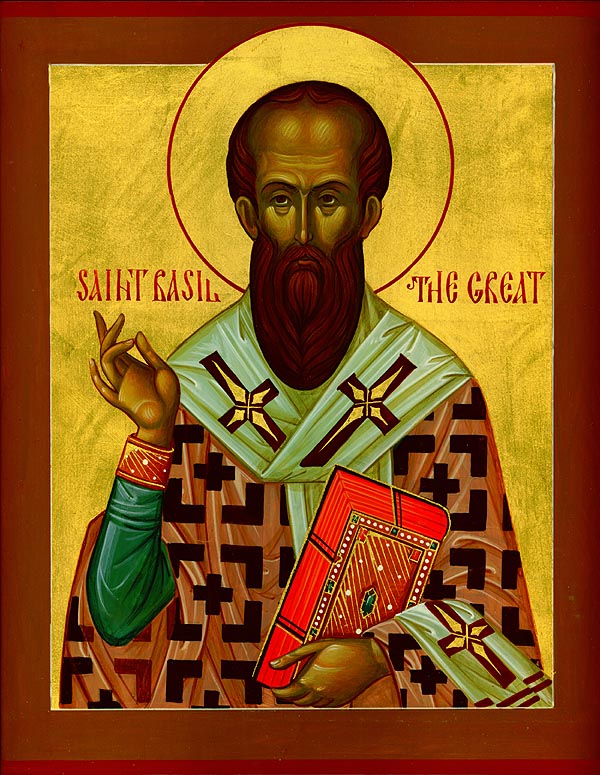This article is the fourth of a four part series in response to James White’s 13 April 2017 podcast: “Can a Consistent Eastern Orthodox Believer Be the Bible Answer Man?” For my previous responses, please see: “Response to James White” (1 of 4), (2 of 4) and (3 of 4). The purpose of these articles is not to defend Hank Hanegraaff, but to promote good reasoning and courteous interaction between Protestants and Orthodox.
Imposing Protestant Expectations on Orthodoxy
At the 16:15 mark, James White cites the Roman Catholic Catechism’s definition then declares that Orthodoxy holds to the same understanding. In 16:20, he makes the bold assertion that there is no way to define this capital “T” Tradition because there is no Tradition to begin with. For him it’s just a mishmash of arbitrarily selected sayings from Church Fathers. Here we see the imposing of Protestant expectations on Orthodoxy. This is the external expectation fallacy, that is, Orthodoxy ought to have a neat, tidy definition of theological terms like those used by Western Christians.
It seems to me that Mr. White has not done his homework. Has he not read Metropolitan Kallistos (Timothy) Ware’s modern classic The Orthodox Church? In chapter 10 “Holy Tradition: The Source of the Orthodox Faith” is a detailed and nuanced discussion of Orthodoxy’s capital “T” Tradition.
 Protestants who wish to understand what Tradition is should read Basil the Great’s (c. 329-379) description and defense of unwritten Tradition found in his classic work On the Holy Spirit:
Protestants who wish to understand what Tradition is should read Basil the Great’s (c. 329-379) description and defense of unwritten Tradition found in his classic work On the Holy Spirit:
What writing has taught us to turn to the East at the prayer? Which of the saints has left us in writing the words of the invocation at the displaying of the bread of the Eucharist and the cup of blessing? For we are not, as is well known, content with what the apostle or the Gospel has recorded, but both in preface and conclusion we add other words as being of great importance to the validity of the ministry, and these we derive from unwritten teaching. Moreover we bless the water of baptism and the oil of the chrism, and besides this the catechumen who is being baptized. On what written authority do we do this? Is not our authority silent and mystical tradition? (Chapter 27, §66)
Another important source is Irenaeus of Lyons (c. 130 – c. 202) who in Against Heresies 4.33.8 gives a detailed description of Apostolic Tradition:
8. True knowledge is [that which consists in] the doctrine of the apostles, and the ancient constitution of the Church throughout all the world, and the distinctive manifestation of the body of Christ according to the successions of the bishops, by which they have handed down that Church which exists in every place, and has come even unto us, being guarded and preserved without any forging of Scriptures, by a very complete system of doctrine, and neither receiving addition nor [suffering] curtailment [in the truths which she believes]; and [it consists in] reading [the word of God] without falsification, and a lawful and diligent exposition in harmony with the Scriptures, both without danger and without blasphemy; and [above all, it consists in] the pre-eminent gift of love which is more precious than knowledge, more glorious than prophecy, and which excels all the other gifts [of God]. [cf. ANF p. 508]
The multiple citations from a modern twentieth century bishop and two Church Fathers show that Orthodoxy does not lack for a definition of what Apostolic Tradition is. Mr. White needs to do his homework. Given his unfamiliarity with the early Church Fathers, it would be good for him and other Protestant apologists to seek the help and guidance of knowledgeable Orthodox Christians. Hasty generalizations, oversimplification, and faulty equivalence with Roman Catholicism, while entertaining, create obstacles to fruitful Reformed-Orthodox dialogue.
Closing Remarks
The purpose of this series of responses has not been to refute Mr. White as to clear away the errors and fallacies that prevent people from learning what Orthodoxy is about. Oftentimes the aim of Protestant anti-Orthodox apologetics is to prevent people from inquiring about Orthodoxy. Our goal here is to encourage people to inquire about Orthodoxy, to critically compare Orthodoxy against what Protestant assert about Orthodoxy.
Sincere Christians who are zealous to be “biblical” will see that Orthodoxy’s Holy Tradition is clearly taught in the very pages of Holy Scripture. Please read “Biblical Basis for Holy Tradition” which presents verses right out of your bible. We invite you to do your own homework too. For Western Protestants, understanding and grasping Orthodoxy take time. It will at first seem a odd and strange, but with some study and an open mind, one can begin to appreciate the rich and ancient spiritual heritage preserved from the beginning in the One Holy Orthodox Church. As part of your homework don’t neglect to attend a Sunday worship service at an Orthodox parish near you!
Robert Arakaki
Recommended Reading
Robert Arakaki. 2017. “How NOT to Do Anti-Orthodox Apologetics.”



The other area in which Protestants have a clear bias is that everything must be written. Somewhat understandable as the recent innovation of moveable type clearly was significant in spreading the new faith.
What they misunderstand is that the oral handing down of spiritual and cultural traditions was by far the most widespread way to “pass the torch”.
The Old Testament and a good part of the Gospels bear many of the hallmarks of an oral tradition later set to writing. Particularly the geneologies of Jesus in St. Matthew.
Oral tradition is very accurate as great effort and concentration is put into making it so because the life of the society depends on it.
Even St. Anthanasius in the beginning of his work, “On the Incarnation” alluded to what was passed down to him.
In times of persecution, such transmission is much more reliable than written too.
St. Paul wrote letters and the written word had always been important but never exclusive in the teaching of the Christian faith.
It is historical blindness to suppose that the written word somehow takes precedence over the spoken word.
Michael,
Thank you for sharing your thoughts. I would add that probably what was at work was the emergence of a print culture of modernity. Athanasius and other Church Fathers lived in a predominantly oral culture. So much of early Christian worship was grounded in orality. One did not follow along reading a liturgy book but rather recited parts of the Liturgy by heart. I suspect that this cultural bias lies behind what you call “historical blindness.”
Robert
It is hard to avoid particularly in a culture that values so -called progress.
In history it is called presentism which I believe you have alluded to in your posts.
The great biographer of Thomas Jefferson, Dumas Malone, called the antidote empathetic projection.
Putting oneself as much as possible in the place of others: time, space and environment.
A discipline that is all but lost in today’s ideologically driven certitude.
“Empathetic projection.” I like that!
Robert
It sets apart those who seek the truth of man from those who think they already know it. Those who have a merciful heart from those who sit, unwarrantedly, in the judgement seat.
Robert, it sets apart those who seek the truth of man from those who think they already know it. Those who have a merciful heart from those who sit, unwarrantedly, in the judgement seat.
While it is true that oral tradition was important, I would have to disagree with you that the written even then did not take precedence. Take for example Luke 1:3-4: “It also seemed good to me…to write to you in an orderly sequence, most honorable Theophilus, so that you may know the certainty of the things about which you have been instructed.” Or Prov. 22:19-21: “Haven’t I written for you…counsel and knowledge, in order to teach you true and reliable words, so that you may give a dependable report to those who sent you?” So we have Luke providing a written account for Theophilus so that he will have a certainty about previous oral instruction. The Proverbs example could be related to someone delivering a message; wouldn’t a message written and sealed by a King provide more certainty and dependability than just the spoken word of the messenger? A more extreme example of how the written even takes authority over the oral in the ancient eastern mindset can be seen in Esther 8:8: “A document written in the king’s name and sealed with the royal signet ring cannot be revoked”. So here even King Xerxes himself could not undo the previously sealed command to kill the Jews, the only recourse was to provide another sealed command that gave the Jews the right to arm and defend themselves.
On an interesting side note with respect to persecution, per Eusebius’ Church History we know that during the persecution authorities would seek out Scriptures to burn. In turn this is one of the events that served as an impetus for producing a canonical list of what was to be considered actual Scripture. Essentially people wanted to know which books were worth protecting with their lives and which ones could be turned over. In other words believers were willing to give up their bodies, and whatever words it could speak, over to the flames before they would hand over the written word. So I would say that regardless of whether oral transmission is more reliable or not, these martyrs considered the written more important than their voices.
Erik, it is both oral and written, not either or. They intertwine with each other and mutually support each other. The Church needs both.
The trouble with the written Scripture for we English speakers is that a great deal depends on translation. Unless the translation is done within the proper context it will be misleading. Since I have no aptitude of leaning other languages, I am at the mercy of translators if I am left to my own devices.
There is a third leg of Tradition (the Holy Trinity appears again). That is the experience of the living God revealed in the lives of the saints.
St. Seraphim of Sarov in his conversation with his disciple Motovolov said “The aim of the Christian life is acquisition of the Holy Spirit”. The entire record of that conversation can be found on line. A fine demonstration of the combination of written and oral in passing down the truth as well.
My priest read extensively from that conversation in his homily last Sunday on Pentecost. It comports fully with the Scriptural description of Pentecost in Acts which was also read.
The experience of the saints is replicated on a lesser level in the lives of many faithful.
I’m not arguing that it has to be either/or, or that one cannot enhance the other. I’m just saying that historically the written has been given precedence over the oral. Not unlike how the Four Gospels are given precedence over the Pauline Epistles in EO, or what they refer to as a “canon within a canon”.